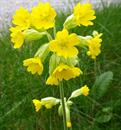Summary: doggerel is inferior poetry; they are both usually divided into verses.
Verse (a collective noun, usually used with the definite article (‘the’); as in: “I am fond of the verse of GM Hopkins.”)
- a body of poetry, as of a specific writer or period.
- a poetic form of writing with regular meter and a fixed rhyme scheme.
- metrical writing or speaking, esp. when light or trivial or merely metered and rhymed, but without much serious content or artistic merit.
- a particular form of poetic composition: free verse, trochaic verse.
Verse: a noun, referring to a particular segment of a poem or of a piece of text.
- a stanza or group of lines in a poem or song, sometimes used to distinguish the verse (the new bit of the narrative) from the chorus/refrain.
- a single, usually numbered, short division of a chapter of the Bible. (As in Leviticus 3:16 – the book of Leviticus, chapter 3, verse 16.)
Poetry: a noun.
- literary work in which the expression of feelings and ideas is given intensity by the use of distinctive style and rhythm.
- poems collectively or as a genre of literature.
The types of poetry include Ballad, Elegy, Epic Poem, Free Verse, Haiku, Imagery, Limerick and Pastoral.
Doggerel: poetry or verse of a crude or irregular construction. “The term was originally applied to humorous verse, but now means verse lacking artistry or meaning. Doggerel is poetry that is irregular in rhythm and in rhyme, often deliberately for burlesque or comic effect. Alternatively, it can mean verse which has a monotonous rhythm, easy rhyme, and cheap or trivial meaning.”
“Doggerel is a technical term for bad poetry, which is usually characterized by irregular verse, forced rhyme and overly sentimental tones. It can also be used for comical effect. You probably know or knew someone in high school who wrote doggerel.”
– and breaking news: [from Macquarie dictionary blog]
“Who are we versing this week? A teacher commented that the verb ‘to verse’ as in ‘Who are we versing this week?’ is so entrenched that it ought to be in the Macquarie Dictionary.
Well, we are pleased to say that it has been since 2009. The usage note says that it occurs mostly in the speech of children, but the children are growing up. As Column 8 said, the children are now working in the sports department of the ABC. It is time to accept that versing is in adult language now.”
Neologism: A neologism is a relatively recent or isolated term, word, or phrase that may be in the process of entering common use, but that has not yet been fully accepted into mainstream language.
